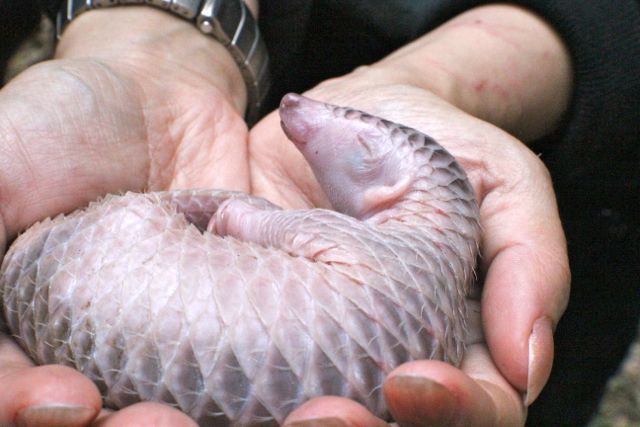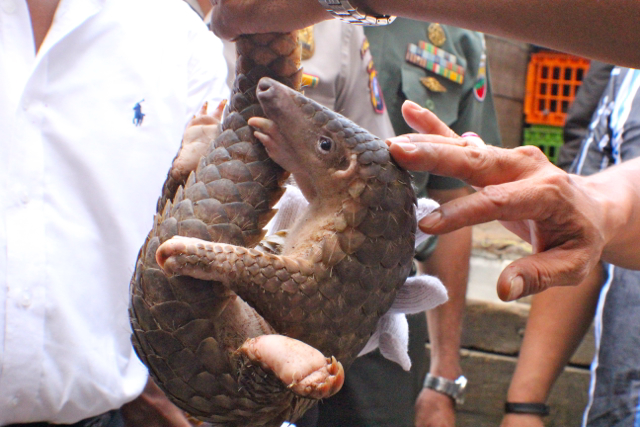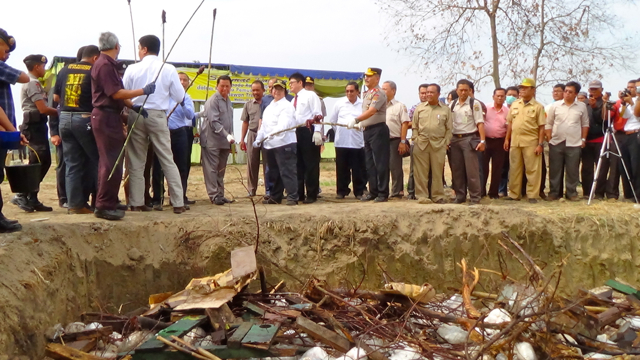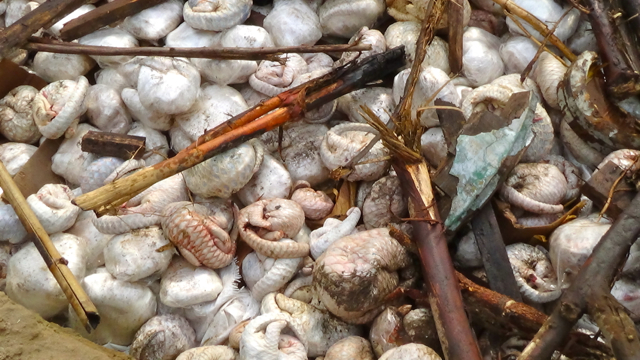
A baby pangolin was born in the wake of a massive bust in North Sumatra. Photo: Ayat S. Karokaro
Following a major seizure of illegal wildlife goods in North Sumatra, the Indonesian authorities released 94 pangolins into the wild last week, including a newborn whose mother died shortly after the authorities caught up with the traffickers.
Environment and Forestry Minister Siti Nurbaya flew to the provincial capital of Medan to witness the burning of five tons of pangolin meat which had been confiscated along with 77 kilograms (169 pounds) of pangolin scales and the live animals.
The minister urged judges to hand down harsher punishments to serve as a deterrent.
“In Palembang (the capital of Jambi province), the prosecutor demanded the maximum penalty of five years and Rp500 million ($38,000),” she said. “We expect the same for this network in Medan.”
At present, offenders get an average of eight months behind bars and Rp10 million. “That’s the reason illegal wildlife networks stay in business,” said Irma Hermawati, a legal advisor from the nonprofit Wildlife Conservation Society.

One of the live pangolins that was rescued from traffickers in North Sumatra. Photo: Ayat S. Karokaro
Besides the newborn’s mother, two other pangolins died in the wake of the raid. A team of veterinarians nevertheless decided that all of the animals, even the baby, were fit enough to return to the wild.
“If we keep [the baby] first, it’s not necessarily better,” said Tata Jati Rasa, an official from the provincial Natural Resources Conservation Agency (BBKSDA). “Let us release it. We believe it can survive. Let nature determine whether it will live.”
Pangolins are critically endangered and highly sought after in East Asia for use of their body parts in traditional medicine and cuisine. One of them can sell for Rp500,000-800,000, according to Didit Wijanardi, a deputy at the Indonesian National Police’s detectives’ unit (Bareskrim).
“This is the driving factor pushing people into the woods to hunt,” he said. “We need to fight this because pangolins are a protected species.”

Indonesian Environment and Forestry Minister Siti Nurbaya stands over a pit full of five tons of frozen pangolin seized from traffickers and which the authorities were preparing to burn. Photo: Ayat S. Karokaro

Dead pangolins lie at the bottom of a pit in North Sumatra. Photo: Ayat S. Karokaro
Produced in English by Philip Jacobson.
Citations:
- Ayat S. Karokaro. “Inilah Pelepasliaran dan Pemusnahan Trenggiling Sitaan di Sumut” Mongabay-Indonesia. 29 April 2015.